It Takes A Village
Cardboard Republic: So, Village in a Box is not so much one game, but eight small games. Do they have an overarching theme or something that ties them together?
Village in a Box is just one game. The Village in a Box Kickstarter is Village in a Box plus seven other games, where Village in a Box is the flagship title. They don’t tie together in theme, and they all have different designers. However, they are all micro-games, meaning they all fit in a tuck box and play in 30 minutes or less with 2-4 players.
CR: Can you briefly describe the individual games?
Sure:
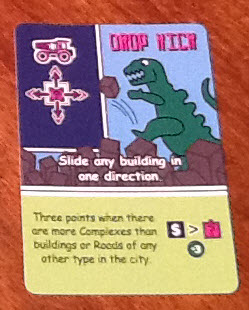
Monster City Planners lets you dropkick buildings!
Village in a Box has each player taking on the role of a noble trying to create the best village they can for their miserable subjects.
Noueni is a tile layering game which plays kind of like a brainier version of dominoes.
Dungeoneering Dolls is a set-collection game where each player tries to build up a party to go on quests.
Monster City Planners has the players trying to design a city while ten story tall monsters are tearing it apart.
Trade Fleet takes the players to the high seas trying to get goods to port while avoiding pirates and storms.
Starship Battles lets each player design a warship and then all the players duke it out to the last man (or woman) standing.
Overlords is a set-collection drafting game where each player is trying to build up an epic army.
And Railroads is a fast-paced card game where each player has to build railroads and trains and try to get goods to the right city to get the most points.
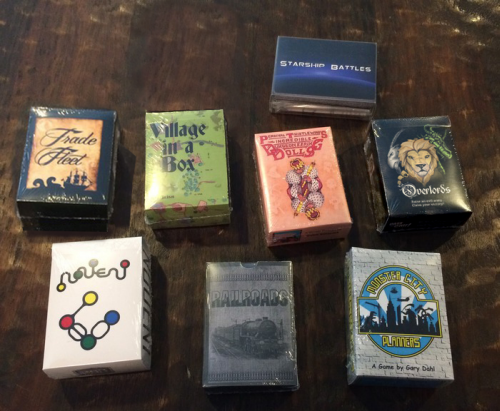
All eight games in The Big Bundle.
CR: Why include all eight games in one Kickstarter rather than one game in eight Kickstarters?
We wanted to make our Kickstarter stand out in a crowd. By doing a bundle we can spread the high cost of shipping across many games, allowing us to do an amazing bundle where you can buy all eight games for only $89 (including shipping). That’s a smoking deal. Also, we have hundreds of great games in our library at The Game Crafter, so by doing a bundle we can showcase more games at once.
CR: Were the games all designed by the same person, or are you working with a collection of designers?
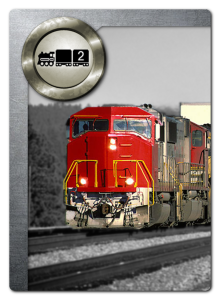 We worked with 8 different designers. We’re quite close with the board game design community, so we’re aware of lots of great designers and their games. In this case, we had just finished a micro-game design contest (Micro-Game Challenge), and all but one of the games were entered into that contest.
We worked with 8 different designers. We’re quite close with the board game design community, so we’re aware of lots of great designers and their games. In this case, we had just finished a micro-game design contest (Micro-Game Challenge), and all but one of the games were entered into that contest.
The Grand Experiment
CR: Logistically, managing the designing, pledging, and shipping of a Kickstarter with so many variables seems like a challenge. What systems will you have in place to ensure that everything runs smoothly?
You’re right; for most people this would be a daunting challenge. Luckily for us, it’s a bit of old hat. We have eight different designers who have already designed all eight of the games. So the burden on us is just turning the pledges into a series of shipments. We already ship thousands of games to customers all over the world every month. In addition, though we don’t run Kickstarters ourselves, we have run the fulfillment for dozens of Kickstarters on behalf of our customers. So for us, this is actually a rather trivial matter.
CR: Given that you’re using a rather unconventional crowdfunding model here, do you see this as an experiment to test a new way of using Kickstarter?
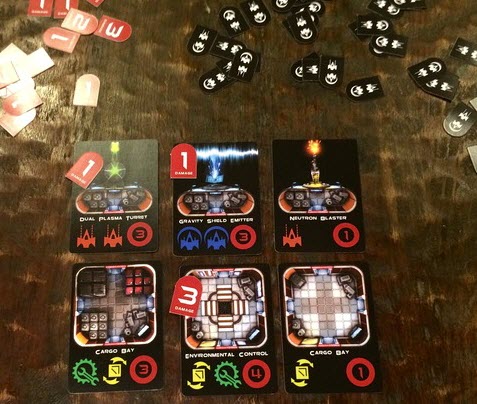
Starship Battles in action.
Absolutely. In fact, we’ve been calling it an experiment in our blog and in other interviews we’ve done. It’s an experiment to run a Kickstarter this way, as a bundle, while trying to meet the needs of both our backers and the designers involved. And it’s an experiment because as a company we’ve never run a Kickstarter before. From this experiment we hope to learn the following:
- Should we run another Kickstarter in the future? And if so, should we do it in this manner or something entirely different?
- We already do Kickstarter fulfillment for others, so through this process can we learn more about the process so we can better serve our existing customer base?
- Is this a good way for people to discover some of the great indie games that are out there?
CR: So far, have you noticed any trends in how people are choosing to back the project? Are mostly people choosing the big box, containing all eight games, or Village in a Box plus one of the other games for instance?
It’s split fairly equally between just Village in a Box (140 backers), a two-game bundle (120 backers), and The Big Bundle (150 backers).
CR: I’ve noticed that several of the micro-games (Railroads, Overlords, Monster City Planners) contain a drafting mechanic. Do you think this is something that works particularly well in micro-games? Is it the start of a new trend, or more a coincidence?
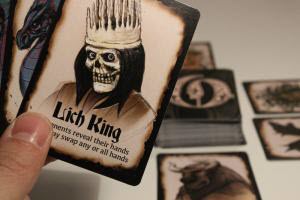
Overlord’s Lich King says hello.
Overlords and Monster City Planners are very much drafting games, though Railroads has a sort of drafting component but it’s barely detectable compared to the other mechanics of the game.
I think that drafting does lend itself nicely to card games, because it helps reduce much of the randomness you find in card games. Micro-games are often card games because cards are relatively inexpensive, yet quite versatile, so they fit quite well when making a small game. Not all games need the randomness of a deck removed, but some can certainly benefit from a drafting mechanic to add a little extra strategy. Whether it’s a trend or not though, I don’t think so. I think it’s just gained more popularity in recent years due to the success of games like 7 Wonders.
CR: Lastly, and most importantly, if people don’t go and get their Villages now, will these games be available through The Game Crafter when the Kickstarter is over?
Yes. After we’ve fulfilled all these orders, the games will go up for sale on our site. So those that miss out on the Kickstarter will be able to get the games. However, if you want the bundle price, you will need to back the Kickstarter, because the bundle ends with the Kickstarter.
Village in a Box is more than just a handful of individual games being bundled together. It’s also an exercise in bringing wider attention to the indie of indie games. Each of the choices offer something slightly different from one another, and if you’re looking for a group of innovative and mico-games, then you may be in the right place. Chances are one of them will interest you. You can learn more about each of them over at The Game Crafter’s inaugural Kickstarter right now.
Photo Credits: All artwork by The Game Crafter and their respective designers.
